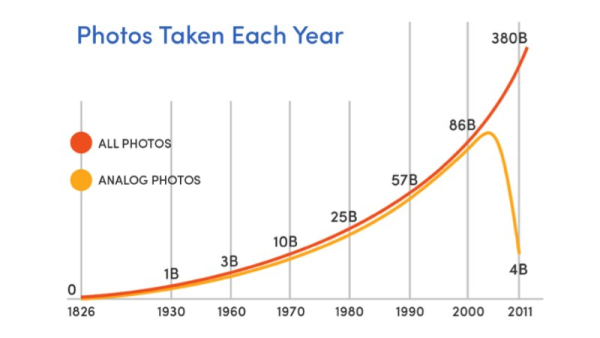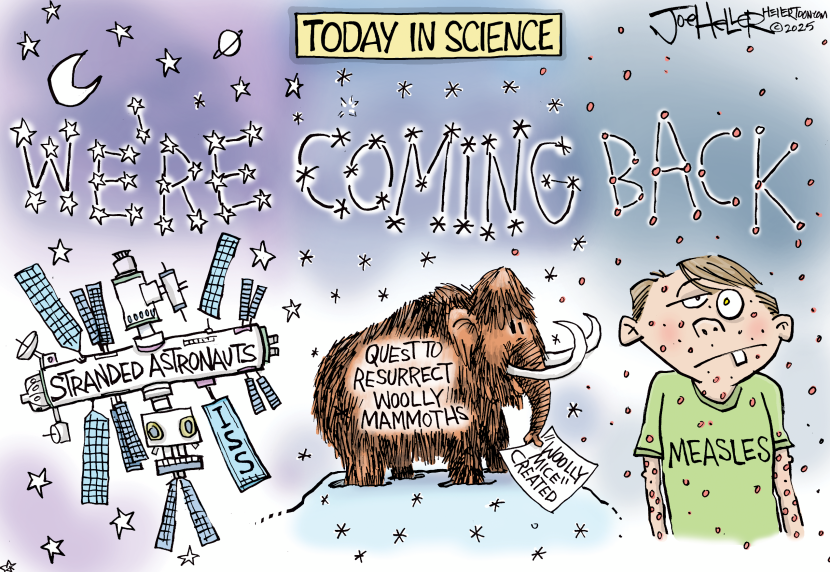Last night, at a family dinner, the concept of choosing “the easy way or the hard way” was discussed. The focus was on how, when you keep choosing the easy path, you end up with a harder life, and when you exercise discipline and challenge yourself, life eventually becomes easier.
Life can be hard today or hard tomorrow… You get to decide. This reminded me of a bigger discussion we’ve had about resilience and grit …
I believe in setting high standards and committing to achieving them. A big part of success is knowing that you can do anything you commit to ... and then all you have to do is honor your commitment and continue to make progress. As long as you don’t stop ... the rest takes care of itself.
Said another way, resilience is the ability to recover from or adjust to misfortune or change, whereas grit is the passion and perseverance for long-term goals. Sure, you will encounter errors, injuries, setbacks, competition, bad luck, and other practical realities of life. But, together, resilience and grit make almost anything possible.
The bottom line is that if you want success of any kind, you have to be comfortable being uncomfortable.
When I was in high school, I was a state champion shot-putter. The first time I got that title was during my junior year. After winning, I watched my dad run down from the stands. I figured he was coming down to celebrate. Instead, he looked deeply into my eyes and asked whether I was disappointed. I replied: “But Dad, I won!” He nodded and said he knew – but reminded me that I did not throw a personal best that day. He recognized that winning was important too ... Then he reminded me that the other throwers were not the real competition.
Going into spring of my senior year, I had a multi-season undefeated streak. However, I tore a tendon in my throwing hand at the end of the indoor track season at Nationals. Fast forward to the first meet of the outdoor season ... and I was on the sidelines with a cast on my hand. A local reporter approached me and asked how it felt to lose my unbeaten streak. I was confused. I wasn’t losing ... I just wasn’t competing.
But, the concept gnawed at me.
Ultimately, I cut the cast off my hand and tried unsuccessfully to wrap it tight enough that it didn’t hurt. When that didn’t work, I slammed my hand against the floor until it was numb ... I threw once and managed to win. It got easier from there, and I ended the year undefeated.
I think part of it is in my DNA. My father and grandfather were both athletes. My dad played football at Temple University (on the same team as Bill Cosby). He thought he would continue playing with the Philadelphia Eagles, but his career was cut short by a car accident before tryouts. And my grandfather was a professional wrestler called the Green Hornet,
Here is a picture of us together.
 Three Generations of Getsons
Three Generations of Getsons
My youngest son, Zach (who co-writes the weekly commentary with me), was just selected to represent the USA in rugby in the Maccabiah Games this July. It was his third – and probably final time – selected. He still hasn't hung up his cleats after 3 ACL surgeries, a recently broken face, a lacerated spleen, and countless other injuries. Time flies while you are growing old and moving slower.

I continue to watch him get better at the game, despite adversity and what I like to call a “burst of slowness”. He gets that from me … I was also deceptively slow throughout my athletic career.
He’s currently raising money for his trip. If you’d like to support his journey to represent the USA, you can learn more and do so here. Or, if you want it to be tax-deductible, you can support his team as a whole here.
Despite our family’s relative “accolades” in sports, we’re not the most athletic people.
My dad used to joke that our people were meant to own the teams, not play for them.
So, despite the lack of raw athleticism, what drives us to success? I believe the answer is mindset.
The Secret To Success
Your mindset is a set of beliefs that shape how you make sense of the world and yourself. It influences how you think, feel, and behave in any given situation.
My family jokes that my first complete sentence was, “It’s my way, and you’re in it.” Meanwhile, I also believe that “the game isn’t over until I win.” Combine those beliefs ... and it explains why my feet would still be moving toward my goals even if you shot me in the head.
Likewise, my son has continued to reach new heights in rugby because he’s stayed committed and hard-working long after most of his more athletic peers gave up.
Life is not just a sprint; it’s a marathon (that requires you to sprint intermittently more often than you want or are comfortable doing).
How long can you put more effort in … and how many times can you fail without giving up? The answer is as long as you choose!
The habits and lessons of resilience and grit serve well in sports, business, and life.
Too many give up right before they win.
Frankly, too many people stop at the beginning. But you will likely suck at something before you are okay at it. Likewise, you have to be okay before you can be good. Then you have to be good before you can be great!
It takes time and energy to separate yourself from the pack.
My father taught me that most people’s lives are defined by their minimum standards. Why? Because once those standards get met, it is easy to get distracted by other things and how to meet the minimum standards for them as well.
Here is something else worth sharing; it was one of his favorite sayings. “The difference between good and great is infinitesimal.” People who are good take advantage of opportunities; people who are great create them.
The secret to “better” is to set higher standards and commit to achieving them.
It is really quite simple.
- Set big goals and high standards
- Plan how to get there
- Never stop moving
- Never give up
If you follow those rules, it’s hard not to succeed.




Taking Lessons on AI from my Grandmom
Almost every event I go to nowadays ends up focused on AI. At a recent event, conversations ranged from use cases for generative AI (and the ethics of AI image creators) to the long-term effects of AI and its adoption.
Before I could chime in, the conversation had gone to the various comparisons from past generations. When electricity was harnessed, articles claimed that it would never catch on, it would hurt productivity – and woe be unto the artisans it would potentially put out of business if it were to gain traction.
When the radio or TV was released, the older generation was sure it would lead to the death of productivity, have horrible ramifications, and ultimately lead to the next generation's failure.
People resist change. We're wired to avoid harm more than to seek pleasure. The reason is that, evolutionarily, you have to survive to have fun.
On the other hand, my grandmother used to say: "It's easy to get used to nice things."
Here's a transcript of some of my comments during that discussion:
Ultimately, as you start finding ways to use emerging technologies in a way that excites you, the fear and gloom fade.
The best way to break through a wall isn't with a wide net ... but with a sharp blow. You should be decisive and focused.
Commit to using AI in ways that give you energy, which may be entirely different from how you use it now.
So much of what we do now is anchored in the past. This is an opportunity to transcend the old ways you did things and to shape and transform your future (and perhaps even what you believe is possible).
I was an entrepreneur in the late 90s (during the DotCom Bubble). And I remember watching people start to emulate Steve Jobs ... wearing black faux-turtlenecks and talking about how they were transforming their business to be in an Internet company – or which Internet company would be the "next big thing." Looking back, an early sign that a crash was coming was that seemingly everybody had an opinion about what would be hot, and too many people were overly confident in their views because seemingly everyone was saying the same things.
Human nature has remained stubbornly consistent through many waves of technology.
The point is that almost nobody talks about the Internet with the focus and intensity they did in the late 90s ... in part because the Internet is now part of the fabric of society. At this point, it would be weird if somebody didn't use the Internet. And you don't really even have to think about how to use the Internet anymore because there's a WHO to do almost all those HOWs (and many of them are digital WHOs that do those HOWs for you without you even knowing they were needed or being done).
The same is going to be true for AI. Like with any technology, it will suffer from all the same hype-cycle blues of inflated expectations and then disillusionment. But, when we come out the other side, AI will be better for it ... and so will society.
Understanding the Possibility Scale
It helps to understand how we bring things into existence. To start, it's nearly impossible to manifest something you can't first imagine. And there is a moment just before something happens - when it becomes inevitable.
I created this Possibility Scale to help envision the stages of becoming.
As an aside, before today, I would not have attempted to create an image for a post like this. While I love thinking and writing, image creation was outside my area of expertise or unique ability. But now things are different. Today, I simply asked ChatGPT to create that image. Yes, it took me four tries ... each retry starting with "that was great, now help me improve the prompt to (fix the thing I wanted done differently)." At the end, I asked it to give me the complete prompt I could reuse. Contact me if you want the prompt.
Earlier, I mentioned how long it took to get from "Zero-to-One" with AI. But don't fret; things are speeding up, and we're just at the beginning of the process. If I created a scale to show the capabilities of AI, and set the endpoint at 100 to represent AI's potential when I die - even though I'm in my early 60s, I'd put us at only a 3 or 4 on that 100-point scale. Meaning, we are at the beginning of one of the biggest and most asymptotic curves that you can imagine. That also means that you're not late. You're early! Even the fact that you're thinking about stuff like this now means that you are massively ahead of most.
The trick isn't to figure out how to use AI or some AI tool. The trick is to keep the main thing the main thing. Build your ability to recognize when and how to use these new capabilities to bring the future forward faster.
Investing resources into your company is one thing. Realize that there are 1000s of these tools out there, and many more coming. You don't have to build something yourself. It is often faster and better to acquire a tool than it is to spend money on developing and building it.
Think of the Medici family. They invested in people, which in turn triggered the Renaissance. A key to moving forward in the Age of AI will be to invest in the right WHOs, seeking to create the kind of world you want to see or the types of capabilities you desire. Think of this as a strategic investment into creators and entrepreneurs with a vision or who are on a path that aligns with yours.
As you get better and better at doing that, you'll see increasing opportunities to use tools to engage people to collaborate with and create joint ventures. Ultimately, you will collaborate with technology (like it's your thought partner and then your business partner). We are entering exciting times where AI, automation, and innovation will make extraordinary things possible for people looking for opportunities to do extraordinary things.
As my grandmother said, it's easy to get used to nice things.
Onwards!
Posted at 05:25 PM in Books, Business, Current Affairs, Gadgets, Ideas, Market Commentary, Personal Development, Science, Trading, Trading Tools, Web/Tech | Permalink | Comments (0)
Reblog (0)